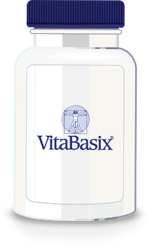The skin is the largest organ in the body. It not only acts as a barrier, but also as a filter that removes excess moisture, salt and oil from your body. However, it not only eliminates metabolic products, but is also involved in the body’s own vitamin D synthesis. Most people strive to have beautiful, glowing skin well into old age. Unfortunately, certain environmental factors and lifestyle choices, as well as the natural ageing process, can have a negative impact on the skin. Hormones can also influence the appearance of the skin. When these are out of balance, the sebaceous glands, for example, produce more oil. This leads to a clogging of the pores. The result is often skin impurities, a loss of skin elasticity and the formation of wrinkles.
The skin needs selected nutrients, vitamins and trace elements to be adequately cared for even in old age. It has already been proven that certain nutrients have a positive effect on the skin and support a normal skin appearance.
These include, among others:
Vitamin C: Is also known as ascorbic acid. Citrus fruits are considered the classic main sources of vitamin C. But many vegetables such as peppers, broccoli and cabbage are also rich in vitamin C. Vitamin C contributes to a normal function of the immune system. The skin also needs enough vitamin C to appear radiant. Vitamin C can help protect the skin from environmental stress and irritation. It contributes to normal collagen formation for normal skin function. Collagen is important to maintain the elasticity and tone of the skin.
Bromelain: This enzyme mixture, which is extracted from the pineapple plant, can stimulate blood circulation in the skin and thus help the skin to gently rid itself of dead skin cells. This makes the skin appear finer and softer. At the same time, this enzyme has anti-inflammatory properties.
Thymus extract: The extract is obtained from the thymus glands of animals (cattle, calves or pigs) and contains many tissue-typical components of the organ. The thymus gland is responsible for controlling the body’s immune system. Unfortunately, its ability diminishes with age. Thymus extract has immunologically active ingredients such as certain enzymes, minerals and trace elements that can help stabilise the body’s own immune system, in particular strengthen the skin’s defences and positively influence the connective tissue and the cell metabolism of the skin.
Burdock root: Burdock (Arctium lappa) belongs to the daisy family. The plant is native to Europe, northern Asia and North America. The most important constituents are inulin, lignans (arctiin) and mucilage. The plant also contains small amounts of essential oils, plant acids and sulphur-containing polyols. Burdock root extract taken can help against both skin blemishes and skin irritations, as well as stimulate the skin’s metabolism and thus promote excretion through the skin.
MSM (methyl sulfonyl methane): Found in almost all foods (milk, fruit, vegetables, cereals, meat, fish, etc.), but often destroyed by excessive heating. This is an important sulphur compound that plays a role in the synthesis of many proteins, including those found in muscles, skin and hair. When there is too little sulphur, the skin loses elasticity. As a result, wrinkles and other signs of ageing can appear. Sulphur suppliers such as MSM can help increase moisture in the skin and protect it from external factors. They can also support the skin in its regeneration.
Other micronutrients that can have a positive effect on the appearance of the skin are vitamins A, B6 and B12, niacin, panthothenic acid and the minerals calcium, zinc, magnesium and potassium.



 Chronobrands
Chronobrands



Reviews
There are no reviews yet.